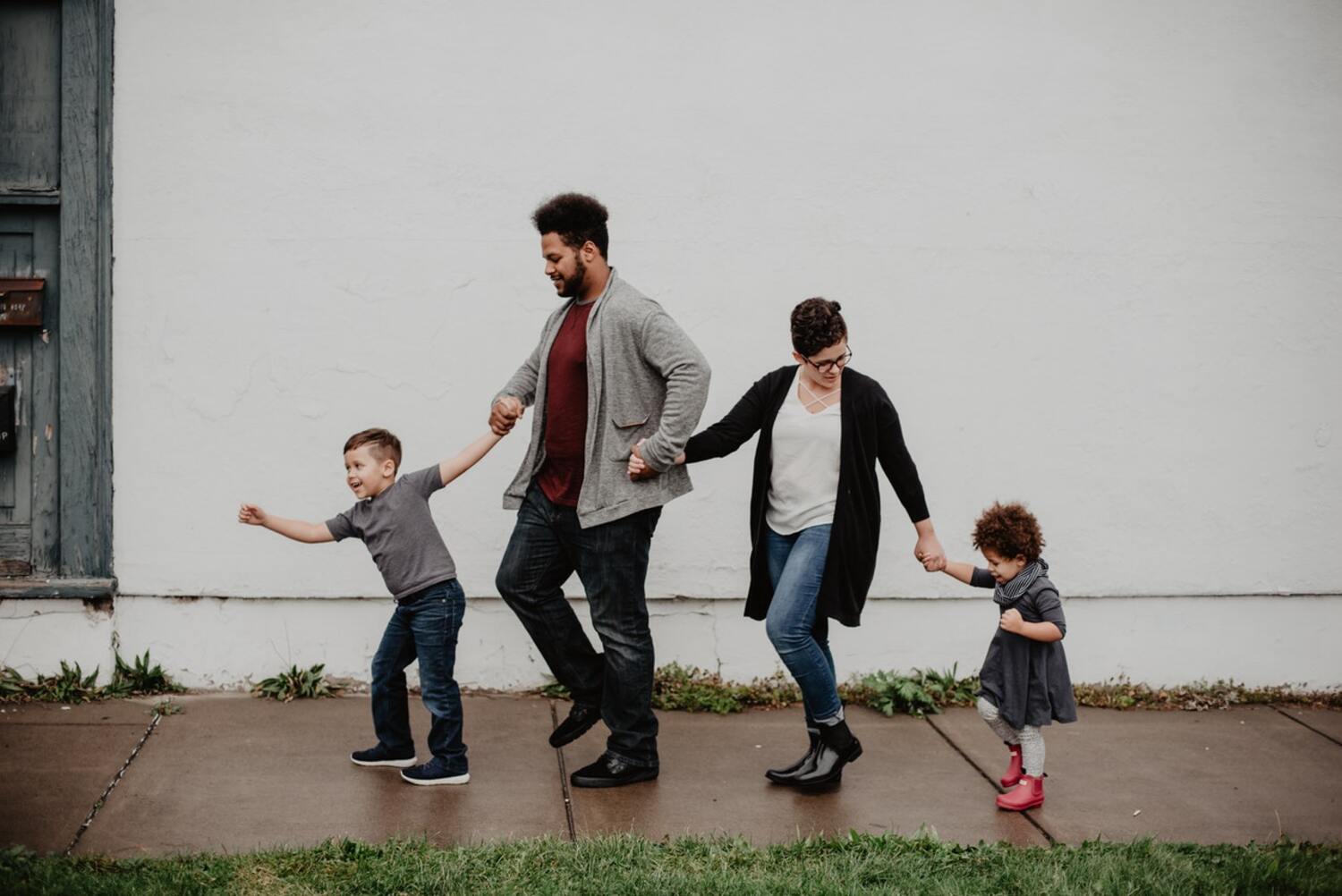15 Coping Skills for Kids Parents Can Teach

As a parent, we have the unique opportunity to help children express and cope with life healthily and appropriately. Children are not born knowing coping skills. Fortunately, caregivers and parents can teach healthy coping skills for kids through practice and reinforcement. The more seamlessly they can use them, the more resilient they become.
What Is Coping?
Coping is what allows us to manage the stressors and emotions in daily life. Healthy coping strategies enable us to experience uncomfortable feelings, challenges, or situations. It helps s get through them without creating significant disruption in our lives.
Why Is It Important to Teach Coping Skills to Children?
We all experience a range of emotions every day, and stress is a normal part of the human experience. Just like we feel best when things are going well and feel manageable, children function best when they have an environment that is predictable, safe, and know how to navigate effectively.
Practicing coping skills helps kids adapt or control their emotions, thinking, and behavior in difficult situations. There is a direct connection between emotional regulation and the development of resilience in children.
3 Vital Purposes for Children’s Emotions
1. Provides children with information about their well-being.
Feelings such as happiness and trust help a child feel better, safe and secure. Affectionate feelings tell a child they are lovable and that others value them. Feelings of pride are linked with feelings of competence.
Some emotions signal displeasure, sadness, or danger and alert children that there are obstacles to overcome. Sadness brings a drop of energy, providing children the opportunity to cope with disappointment. On the other hand, fear prompts children to avoid, escape or otherwise protect themselves from threats.
2. Allows children to communicate.
Emotional displays, such as smiling or crying, provide the first language of communication for children and parents. These cues continue to accompany language throughout life.
3. Influence children’s cognitive development.
Emotions can either support or hinder cognitive tasks. Poorly controlled emotions and negative feelings tend to reduce intellectual functioning and development in children. Strong positive emotions and emotions that are well-regulated support more advanced cognitive activity.
5 Coping Skills for Kids Parents Can Teach
Below are some of the foundational skills parents can teach to help their children develop coping skills for social competence and emotional regulation.
1. Teach Children to Label Feelings
Strong evidence suggests that when adults talk with children about their emotions, the child’s emotional competency increases. Parents can start these conversations by identifying their feelings and directly linking them to the situation.
It is beneficial for children when parents name emotions and describe them as they happen as they are not always aware of their eelings’ internal and situational cues.
2. Teach Children to Problem Solve
Often, children feel powerless in the face of stressors, challenges, or situations they experience. Talking to children about potential outcomes and steps that they can take allows them to recognize that they are not powerless over their lives or their results.
It is essential to differentiate between things they can control and things that they cannot and talk them through appropriate actions. Children who adopt a solution-focused perspective in the face of adversity will be more likely to recognize their power and develop an internal locus of control.
3. Create Natural Opportunities for Emotional Release
When children experience stress or overwhelming emotions, help them to recognize the benefit of moving their bodies. The emotional release related to progressive muscle relaxation allows for emotional regulation and quiets the mind as it focuses on what our bodies are doing.
Children should not be discouraged from crying as it creates a bottling up of unhealthy feelings and keeps them stuck with their emotions.
4. Practice Gratitude and Affirmations
Gratitude fosters emotional resilience by helping us to recognize that the world is not all good or all evil. Affirmations allow challenges without replacing the positive aspects of our lives.
Positive self-talk and affirmations teach children to value themselves and recognize their strengths, which is a handy skill in the face of challenges. For this reason, developing kids healthy coping skills is essential.
5. Provide Them with Opportunities to Practice Their Coping Skills
Having emotion-focused coping skills for younger kids is essential. Emotional regulation requires using emotional awareness in real-life situations that may be upsetting, frustrating, or embarrassing.
Additionally, if you’re looking to give your child a strong foundation for academic success, it may be shocking to hear that the best thing you can do is allow them to play more every day. Playing develops strong social skills for kids.
7 Tips to Help Kids Cope With Life’s Stressors
It is not easy to see the children in our life struggle. Do we often wonder if we have done something wrong and ask ourselves how we got here?
We can feel powerless over how to help kids manage their big feelings and behaviors more effectively. But you CAN make a difference in your child’s ability to manage stress.
1. Consider how you can model the coping skills you would like to see in your children.
Remember that kids learn coping skills by watching how the important adults in their lives handle strong emotions and stress anxiety. Use coping skills to talk to them at age-appropriate levels about your experiences and why you handle them with your chosen coping skills.
2. Talk to your children about feelings (both yours and theirs).
This method helps them to expand their understanding and range of emotions. Remember, it is normal to experience feelings, so our goal is not to change their feelings but to recognize that it is okay to sit in uncomfortable spaces or spend time outside.
3. Listen to your children.
The truth is that it can be easy to dismiss children’s ideas as silly or not honest and not entirely to attend to conversations with them. Yet children who are listened to and feel that others value their opinion develop increased confidence and self-esteem.
4. Help children make a list of strategies they can use when coping with emotions or stress.
Being prepared for these experiences makes practicing coping skills more effective and controlling their feelings and actions. Display this list somewhere that they can easily access, such as the refrigerator, closet door, etc. (for older kids, a list in the note section of their phone is an easy solution).
5. Recognize the symptoms of stress in your child.
Remember that children often express emotion through their behavior. A behavior change is most often a key indicator of stress.
Parents should pay attention to marked changes in behavior such as your child complaining all the time about having a stomach ache, avoiding activities they used to enjoy, emotional changes, plummeting grades, increased fears, or changes in sleep.
6. Talk about your schedule with your children.
We often expect that our children will adapt to whatever we plan or changes in our routine, but just as change is hard for us, children can also have a hard time. Talking to your children at the end of each day about the plans for the next day helps them prepare themselves and decreases the stress and worry they may experience.
7. Seek professional help
Sometimes the coping skills for kids may not be effective. And, that’s okay. Instead, seek professional help when your child is experiencing persistent distress and not eased by coping abilities.
Coping skills for kids should never be a replacement for formal treatment and diagnosis. It’s better to seek help from a professional than unhealthy coping strategies that are not working.
Final Words
There are various coping mechanisms children can use to deal with stress. Every child is unique, and kids deal with their emotions differently. Thus, kids may respond to different ways of coping, such as writing in a kids workbook, deep breathing, a stress ball, or jump rope to encourage play.
It is our hope you found a great way to help your children learn different coping. There are various healthy ways for problem-focused coping that also can help mental health. As a parent, you can work on developing healthy coping skills for kids.
Which skill do you plan to practice healthy coping with your children?






